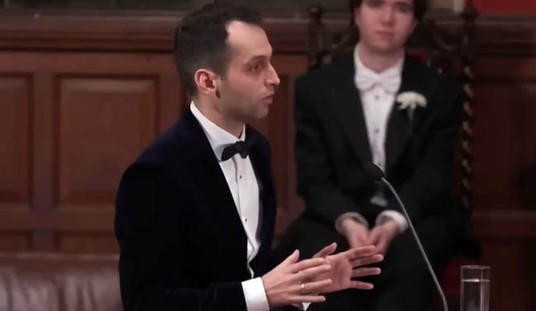Today the Senate Homeland Security Committee released an independent report on the Ft. Hood shootings. The 91 page report is titled A Ticking Time Bomb: Counterterrorism Lessons from the US Government’s Failure to Prevent the Fort Hood Attack. The gist of it is that the FBI and Hasan’s superiors had more than enough information to prevent the shootings and likely would have done so if not for political correctness.
You may recall that the FBI was aware that Hasan was in contact with al Qaeda recruiter Anwar al-Awlaki prior to the shootings. Unfortunately, a confusion between two competing FBI Joint Terrorism Task Forces (JTTF’s) resulted in neither one taking action:
The JTTF that had reviewed the initial [REDACTED] communications dismissed the second JTTF’s work as “slim” but eventually dropped the matter rather than cause a bureaucratic confrontation. The JTTFs now even dispute the extent to which they were in contact with each other in this case. Nonetheless, the JTTFs never raised the dispute to FBI headquarters for resolution, and entities in FBI headquarters responsible for coordination among field offices never acted. As a result, the FBI’s inquiry into Hasan ended prematurely.
But the most stunning portion of the report is the section that offers details about the nature of Hasan’s radicalization as witnessed by his fellow officers:
Hasan advanced to a two-year fellowship at USUHS…Less than a month into the fellowship, in August 2007, Hasan gave another off-topic presentation on a violent Islamist extremist subject instead of on a health care subject. This time, Hasan’s presentation was so controversial that the instructor had to stop it after just two minutes when the class erupted in protest to Hasan’s views. The presentation was entitled, Is the War on Terror a War on Islam: An Islamic Perspective? Hasan’s proposal for this presentation promoted this troubling thesis: that U.S. military operations are a war against lslam rather than based on non-religious security considerations. Hasan’s presentation accorded with the narrative of violent Islamist extremism that the West is at war with Islam. Hasan’s paper was full of empathetic and supportive recitation of other violent Islamist extremist views, including defense of Osama bin Laden, slanted historical accounts blaming the United States for problems in the Middle East, and arguments that anger at the United States is justifiable…The instructor who stopped the presentation said that Hasan was sweating, quite nervous, and agitated after being confronted by the class.
Hasan’s promotion of violent Islamist extremist beliefs continued after the presentation. One classmate said that Hasan supported suicide bombings in another class. He told several classmates that his religion took precedence over the U.S. Constitution he swore to support and defend as a U.S. military officer.
It’s pretty hard to understand how anyone could miss signals that amounted to yelling “Bomb!” in an airport. The report suggests that the real underlying problem was political correctness:
One of the officers who reported Hasan to superiors opined that Hasan was permitted to remain in service because of “political correctness” and ignorance of religious practices. That officer added that he believed that concern about potential discrimination complaints stopped some individuals from challenging Hasan. We are concerned that exactly such worries about “political correctness” inhibited Hasan’s superiors and colleagues who were deeply troubled by his behavior from taking the actions against him that could have prevented the attack at Fort Hood.
This same concern for political correctness likely explains the tremendous gap between Hasan’s actual performance and his official performance reviews:
Hasan was a chronic poor performer during his residency and fe llowship. The program directors overseeing him at Walter Reed and USUHS both ranked him in the bottom 25 percent…Yet Hasan received evaluations that flatly misstated his actual performance. Hasan was described in the evaluations as a star officer, recommended for promotion to major, whose research on violent Islamist extremism would ass ist U.S. counterterrorism efforts.
One report said “His unique interests have captured the interest and attention of peers and mentors alike.” That’s certainly true, though not in the way it sounds. Another review listed “Islamic studies” as a “unique skill” that Hasan possessed. The only criticism of him made in any review involved his failure to take a PT test.
To bring this full circle, it was in part Hasan’s positive performance reviews that helped convince the FBI’s JTTF that Hasan’s contacts with al-Awlaki were legitimate research and not signs of radicalization. Had the reviews contained any hint of concern about his behavior, it’s far more likely the FBI would have acted prior to the shootings. As it was, it was moments after word of the shootings hit the airwaves that the FBI connected the dots:
Shortly after the media began reporting on Hasan’s attack at Fort Hood, the FBI agent told his DClS colleaguc in San Diego, “You know who that is? That’s our boy!”
This report by Joe Lieberman and Susan Collins makes clear that there has been a very dear price paid by the United States in the name of political correctness toward Islam.









Join the conversation as a VIP Member